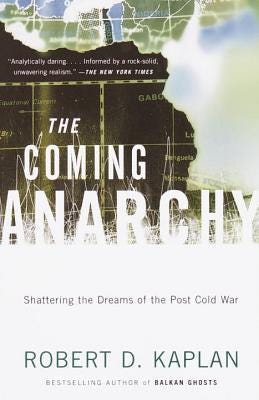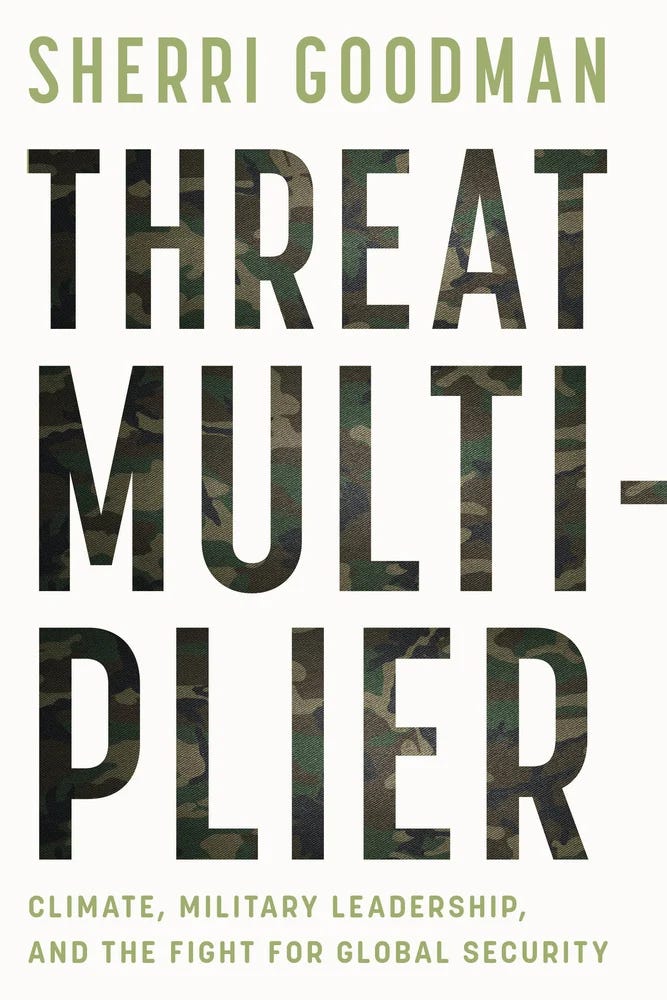In this week’s newsletter:
Alternative Angles: Exercise
Pulitzer Prize Winners
Scholarly Podcasting Event in Singapore this July
Scholarly Sources: Saleem Ali
Channel Spotlight: Environmental Studies
Alternative Angles: Exercise
This week, we are highlighting interviews with scholars who explore exercise from three different disciplines: history, anthropology, and evolutionary biology. Listen to their great interviews to learn more.
First, check out Natalia Mehlman Petrzela’s book Fit Nation: The Gains and Pains of America's Exercise Obsession. Her insightful work investigates the long history of fitness in the United States. How did America become obsessed with exercise? Natalia explores how the idea of fitness shapes our understandings of national community, industry, security, wealth, and wellness.
Then listen to Katie Rose Hejtmanek’s interview about her recently published book, The Cult of CrossFit: Christianity and the American Exercise Phenomenon. She examines how this exercise program is shaped by American Christian values and practices, connecting religious ideas with secular institutions in contemporary American culture.
Finally, tune in to Daniel Lieberman’s episode with Miranda Melcher as he shares his book Exercised: How We Did Not Evolve to Exercise and What to Do about It. He enumerates 12 different myths about exercise. Why do we exercise when we didn’t evolve for it? Why are we more obese than ever despite exercising so much more? Why do some people exercise to the point of injury? Learn more below:
Pulitzer Prize Winners Announced
In 1904, newspaper publisher Joseph Pulitzer included in his will funding for the creation of the Pulitzer Prizes. He specified four awards in journalism, four for books and drama, one for education, and five traveling scholarships. Fast forward to today, the Pulitzer Prize Board now gives out 23 awards, including in poetry, music, photography, memoir and audio journalism.
Read the list of winners in select categories below and listen to our interviews with several of this year’s winners! You can also check out the full list of nominees and winners for each category here.
Fiction: James by Percival Everett
Check out Percival’s great interview about one of his other recently published books, The Trees: A Novel
Drama: Purpose by Branden Jacobs-Jenkins
History (2 winners): Combee: Harriet Tubman, the Combahee River Raid, and Black Freedom During the Civil War by Edda L. Fields-Black and Native Nations: A Millennium in North America, by Kathleen DuVal
Biography: Every Living Thing: The Great and Deadly Race to Know All Life by Jason Roberts
Memoir or Autobiography: Feeding Ghosts: A Graphic Memoir by Tessa Hulls
Poetry: New and Selected Poems by Marie Howe
General Nonfiction: To the Success of Our Hopeless Cause: The Many Lives of the Soviet Dissident Movement by Benjamin Nathans
Music: Sky Islands by Susie Ibarra
Scholarly Podcasting Event
Calling all academics interested in scholarly podcasting! This July, the International Association for Media and Communication Research (IAMCR) will hold a conference in Singapore. As part of the post-conference, the Music, Audio, Radio and Sound (MARS) working group, with support from RMIT and University of Sydney, Australia will host Scholarly Podcasting: Listening, Making, and Knowledge Sharing.
This great event will have 3 sessions: (1) a keynote listening showcase of scholarly podcasts with panel discussion, (2) a hands-on workshop covering podcast creation from concept to audience building, (3) and targeted networking groups matching attendees' interests and expertise. Sessions will be led by specialists in scholarly podcasting who bring extensive experience as both practitioners and researchers.
If you’d like to learn how academic podcasting can amplify diverse voices and contribute to collective knowledge sharing, you won’t want to miss it! More information can be found here, and be sure to register here by May 30!
Scholarly Sources: Saleem Ali
Saleem Ali is the Blue and Gold Distinguished Professor of Energy and the Environment at the University of Delaware. He recently authored Sustainability: A Very Short Introduction
Q: What are you reading right now?
A: Life as We Made It: How 50,000 Years of Human Innovation Refined--And Redefined--Nature by Beth Shapiro
Q: What is your favorite book or essay to assign to give to people and why?
A: Scale by Geoffrey West
Q: Is there a book you read as a student that had a particularly profound impact on your trajectory as a scholar?
A: The Coming Anarchy: Shattering the Dreams of the Post Cold War by Robert Kaplan
Q: Which deceased writer would you most like to meet and why?
A: Barry Commoner - author of The Closing Circle - a classic that started early conversations on sustainability.
Q: What's the best book you've read in the past year?
A: Threat Multiplier by Sherri Goodman
Q: Have you seen any films, documentaries, or museum exhibitions that left an impression on you recently?
A: Connected: The Hidden Science of Everything - a documentary on Netflix about Complex Systems hosted by Latif Nasser
Q: What do you plan on reading next?
A: Nexus by Yuval Noah Harari
Q: Who should read Sustainability: A Very Short Introduction
A: Anyone who wants a reality check on our impact on the planet.
Q: Why is sustainability a useful framework?
A: It is a systems view which considers inherent dependencies across planetary systems.
Listen to Saleem’s recent interview to learn more about the concept of sustainability and the challenges we face managing climate change:
Channel Spotlight: Environmental Studies
After listening to Saleem’s great interview, check out our New Books in Environmental Studies channel!
Tune in to Amy Zhang’s interview about her book, Circular Ecologies: Environmentalism and Waste Politics in Urban China. She explores how waste provoked an unlikely coalition of urban communities, from the middle class to precarious migrant workers, that came to constitute a nascent, bottom-up environmental politics. Her work offers a model for conceptualizing ecological action under authoritarian conditions.
Check out Jennifer Clapp’s interview about Titans of Industrial Agriculture: How a Few Giant Corporations Came to Dominate the Farm Sector and Why It Matters. In this great conversation she discusses her research on the deep roots of corporate power in agriculture, as corporate actors have encouraged the “lock-in” of industrial agriculture despite all its known social and ecological costs.
Hear Tom Lynch talk about his book, Outback and Out West: The Settler-Colonial Environmental Imaginary. He analyzes stories from Australia and the arid American West to compare how colonial stories have impacted land use practices. He demonstrates how colonial narratives have changed the land and implores readers to take concrete, identifiable actions to nudge arid ecologies back toward health.
Subscribe to the New Books in Environmental Studies Channel to learn about exciting new research!








